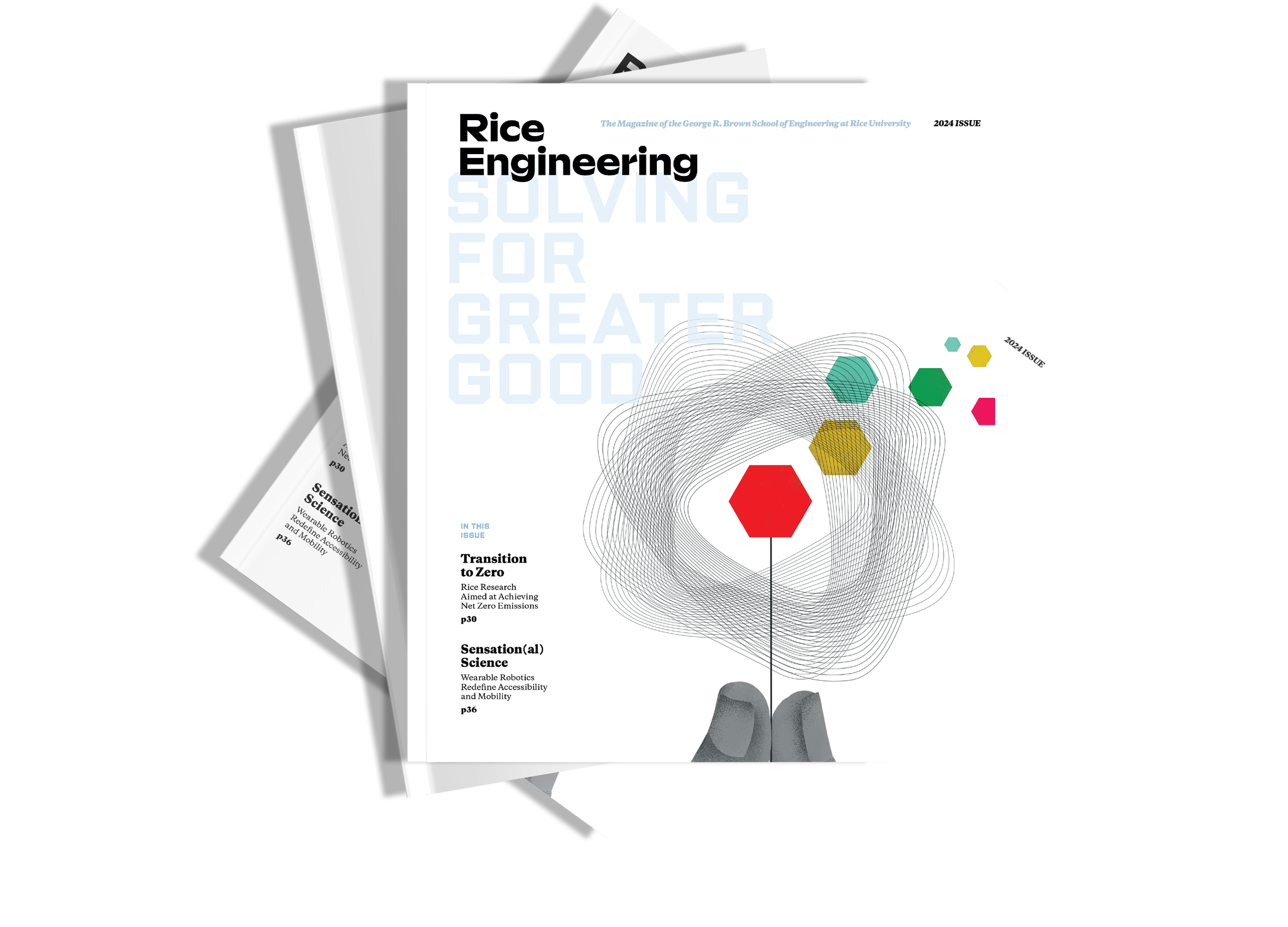
The spring 2024 issue of Rice Engineering Magazine is here!
At Rice Engineering, we are driven by a passion for innovation and a commitment to responsible engineering practices. It’s with great excitement that we unveil the new design of Rice Engineering magazine, which underscores our dedication to excellence in research, education, and service. The 2023-24 issue is full of news about how Rice Engineering is solving for greater good.
Preserving Water Supply Systems

According to the United Nations World Water Development Report 2023, between two and three billion people globally face water scarcity. This condition could worsen in the coming decades unless water management significantly improves.
Rice University engineers propose implementing hybrid urban water supply systems to enhance the resilience and sustainability of a city’s water and wastewater infrastructure. Led by civil and environmental engineering professors Qilin Li, Leonardo Dueñas-Osorio and Lauren Stadler, the research suggests combining conventional, centralized water sources with reclaimed wastewater to create a system capable of withstanding disruptive events like hurricanes and flooding.
“A hybrid system will save energy and help reduce the use of freshwater, a commodity that is becoming critically important around the world,” said Li, who is also co-director of the Nanosystems Engineering Research Center for Nanotechnology Enabled Water Treatment (NEWT) at Rice. “Our research shows that a system like this exhibits lower severity, range of impact and duration of substandard performance when disruption happens.”
According to Dueñas-Osorio, hybrid water supply systems are more resilient than conventional centralized systems. “Using Houston’s municipal water system as a case study, we explore the impact of various disruptions including pump station failures, pipe leakage and source water contamination,” he said.
Nationally, the typical age of failing water mains is about 50 years, while the average age of the 1.6 million miles of water and sewer pipes in the U.S. is 45 years. Some six billion gallons of treated water — roughly 15% of the U.S. daily public water supply — is lost each day from leaky pipes. As global climate change, population growth, and urbanization strain water resources and financial resources due to water systems’ maintenance and upgrade needs, innovative solutions like Rice’s hybrid water sourcing model have become critical.
On a small scale, cities worldwide have already enabled the reclamation and reuse of municipal wastewater for both drinking and non-potable uses such as irrigation.
“Decreasing dependence on already stressed surface and groundwater resources has become increasingly important,” Li said. “Our challenge is to determine how best to implement wastewater reclamation activities to enhance sustainability and resiliency of big city water infrastructure. Our recent research shows how decentralized wastewater treatment and reuse can make this possible.”
